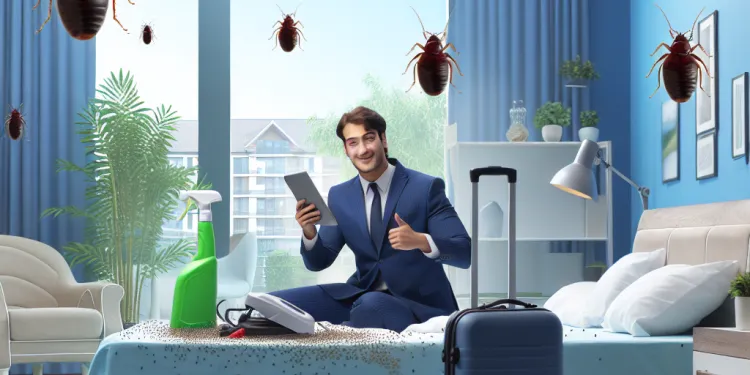
Find Help
More Items From Ergsy search
-
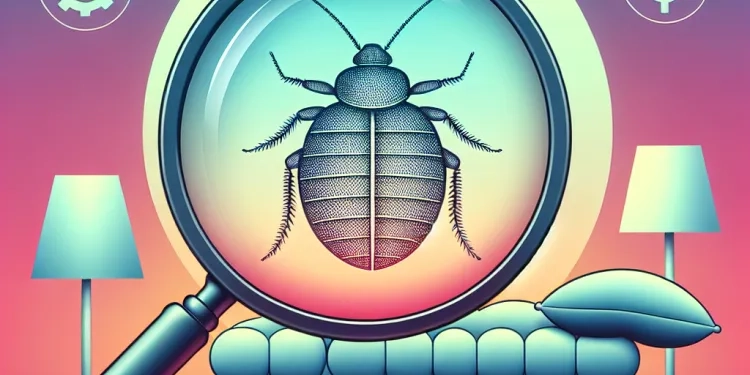
What are bed bugs?
Relevance: 100%
-
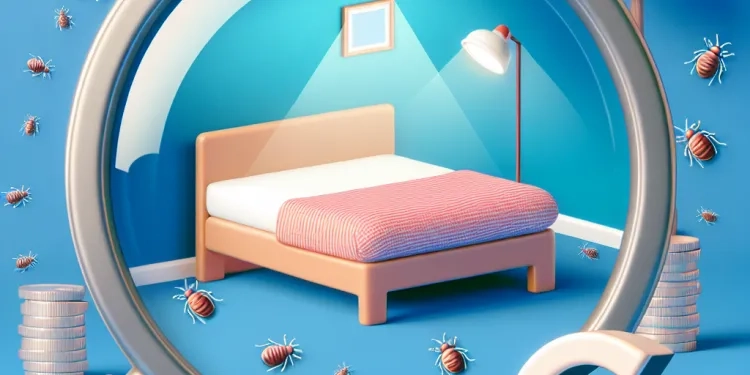
Do bed bugs only live in beds?
Relevance: 100%
-

Bed Bugs / bedbugs
Relevance: 100%
-
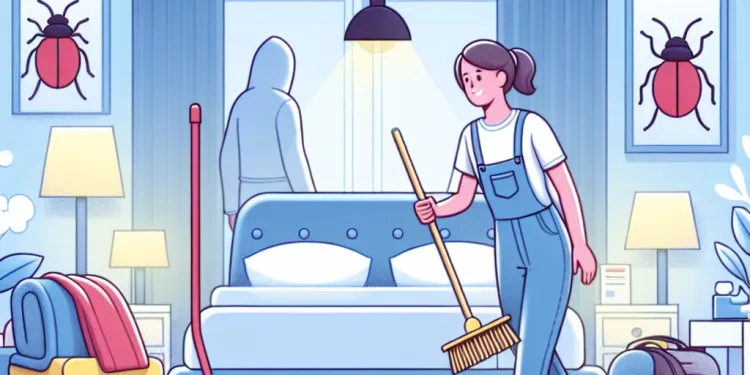
Are bed bugs dangerous?
Relevance: 99%
-
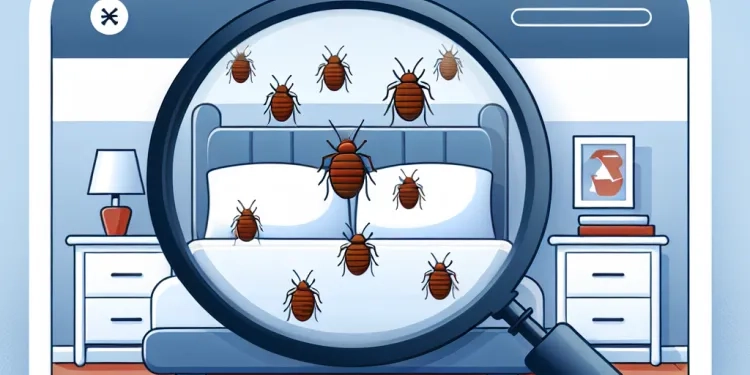
What are the signs of a bed bug infestation?
Relevance: 93%
-
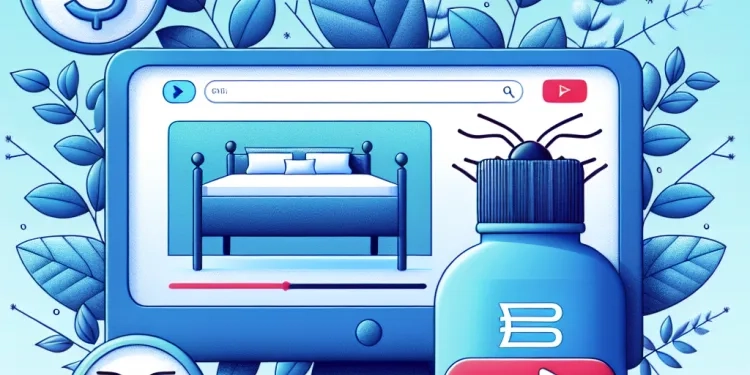
Are there any natural remedies for bed bugs?
Relevance: 92%
-

Why are bed bugs so difficult to eliminate?
Relevance: 92%
-

How do bed bugs enter my home?
Relevance: 91%
-
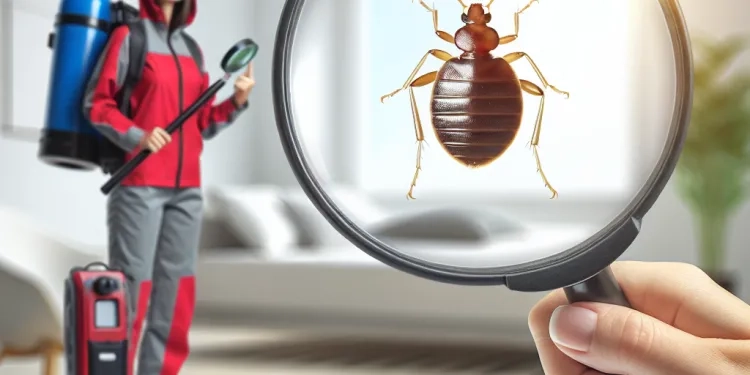
Can I get rid of bed bugs myself?
Relevance: 89%
-
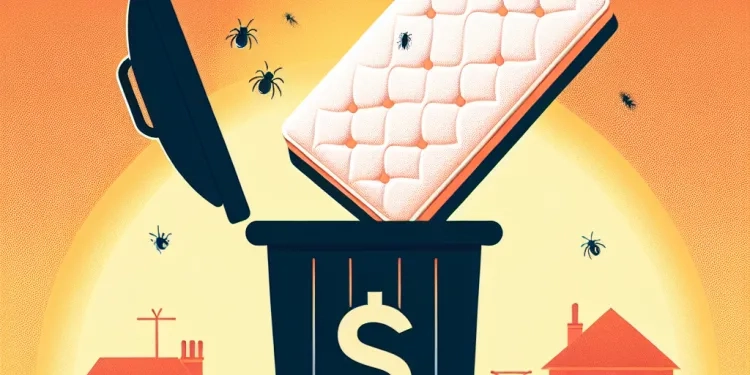
Will disposing of my mattress get rid of bed bugs?
Relevance: 89%
-
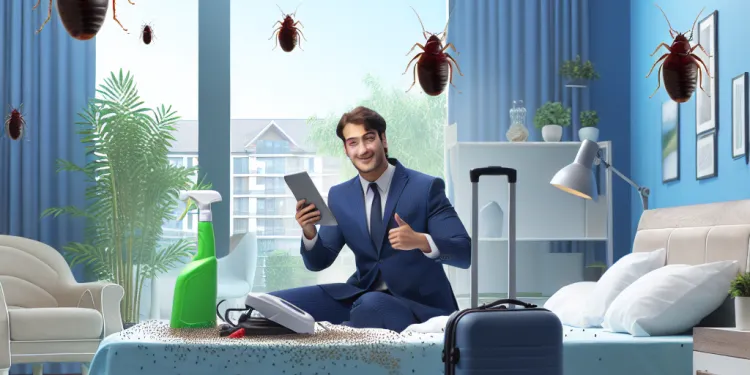
What should I do if I find bed bugs in my house?
Relevance: 88%
-
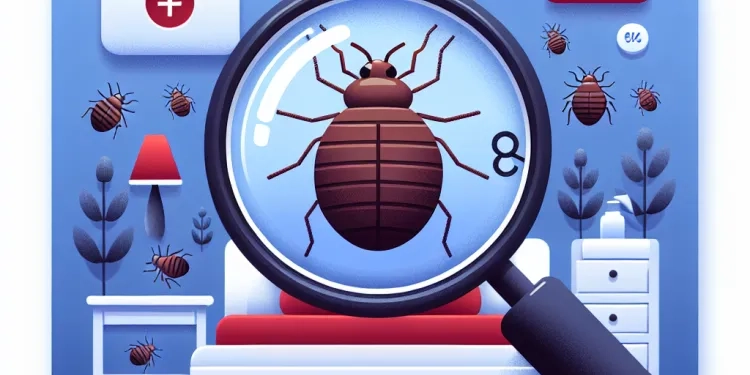
How can I tell if bites are from bed bugs?
Relevance: 86%
-

How can I prevent bringing bed bugs into my home?
Relevance: 86%
-

What items should I wash if I have bed bugs?
Relevance: 85%
-
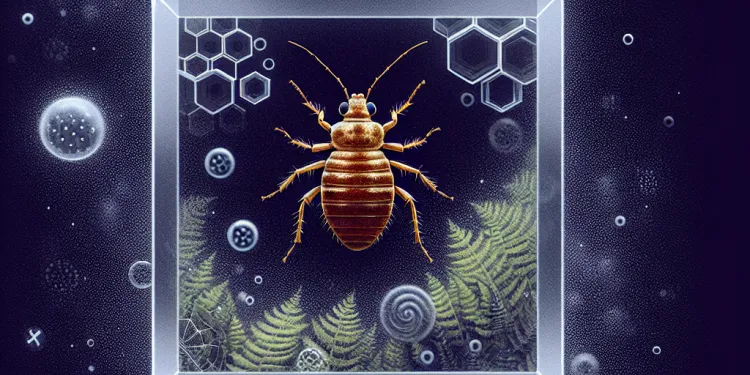
How much does professional bed bug extermination cost in the UK?
Relevance: 82%
-
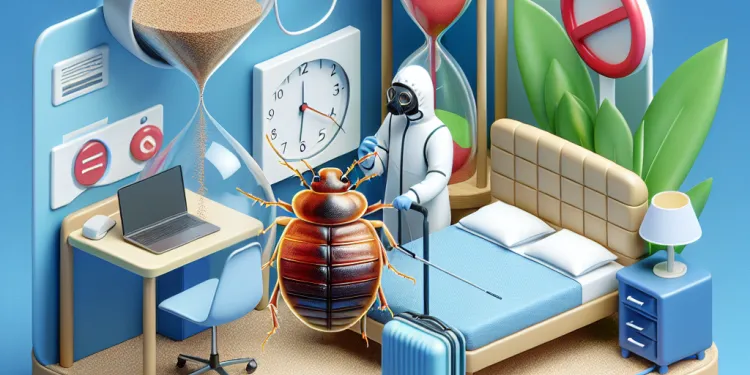
How long does a bed bug extermination process take?
Relevance: 79%
-
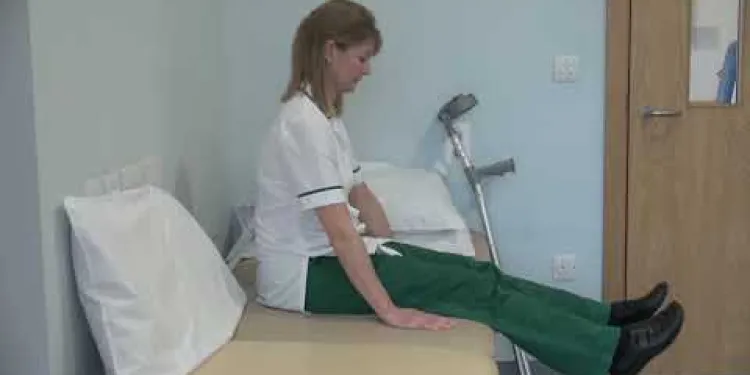
Hip replacement - getting into bed
Relevance: 44%
-
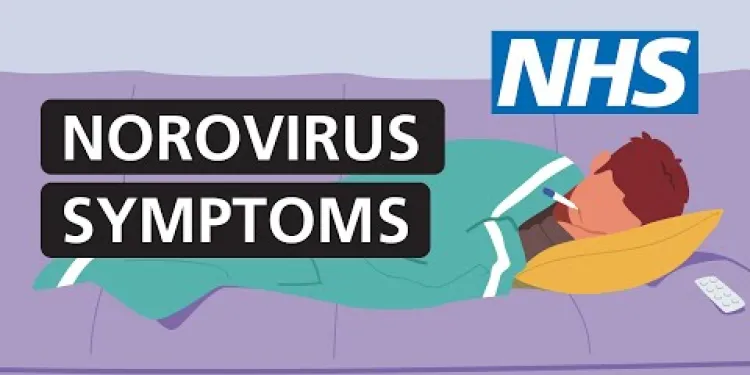
What is norovirus? (Diarrhoea and vomiting bug) | NHS
Relevance: 39%
-
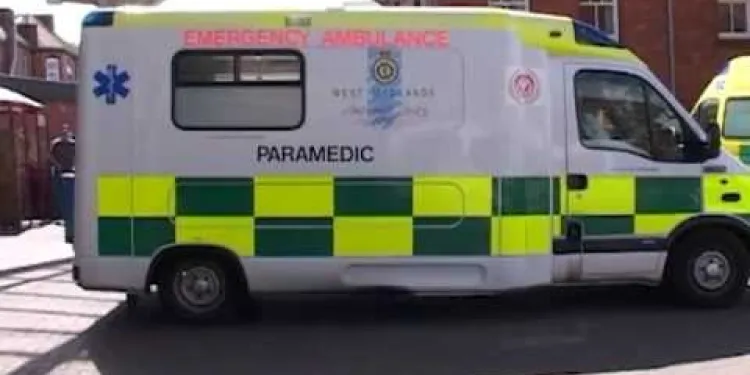
MRSA Bug
Relevance: 34%
-
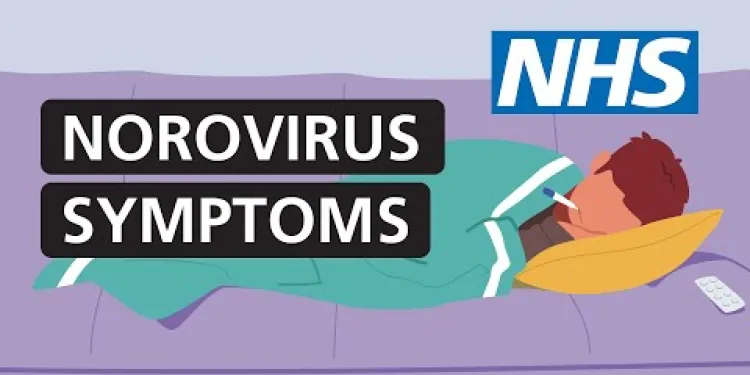
What is norovirus? (Diarrhoea and vomiting bug) | NHS
Relevance: 33%
-

How does screen time before bed specifically affect adolescents?
Relevance: 33%
-
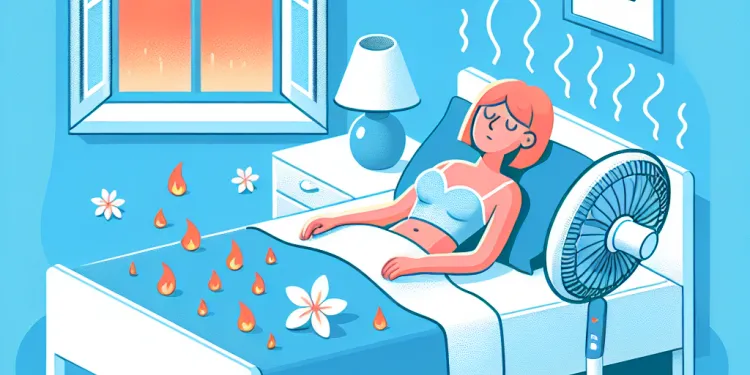
How can I sleep comfortably during a heatwave?
Relevance: 18%
-
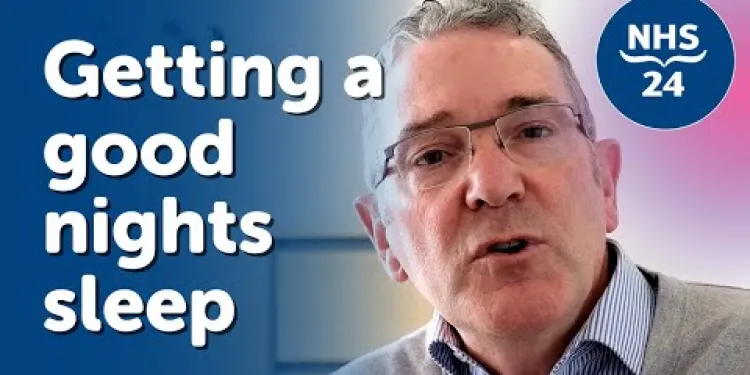
Top Tips to Help You Get a Good Nights Sleep
Relevance: 17%
-

What do pediatricians recommend about baby sleep pillows?
Relevance: 17%
-

Can reducing screen time improve sleep quality?
Relevance: 17%
-

How does screen time affect sleep quality?
Relevance: 16%
-
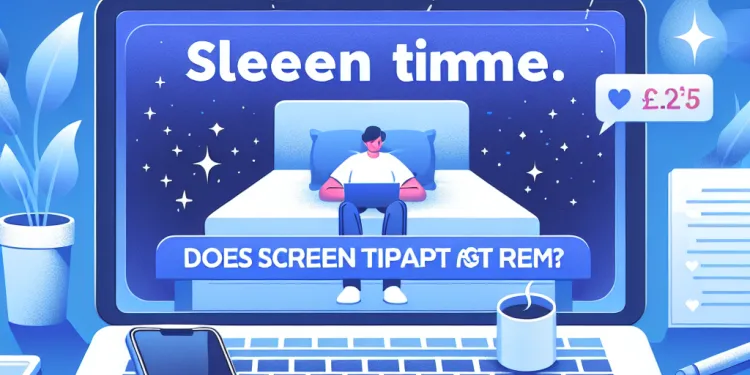
Does screen time impact REM sleep?
Relevance: 16%
-
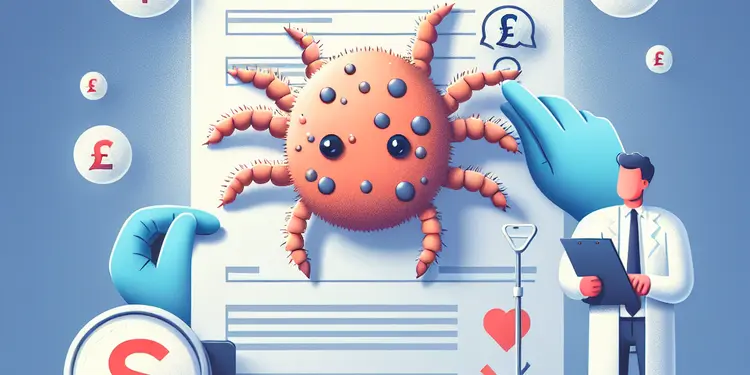
How do you get scabies?
Relevance: 15%
-

Can HIV be transmitted through insect bites?
Relevance: 15%
-

Are there any screen time guidelines recommended for improving sleep?
Relevance: 15%
-

Does screen time affect both sleep onset and sleep maintenance?
Relevance: 15%
-

What is UV radiation?
Relevance: 14%
-

What are scabies?
Relevance: 14%
-

How should household items be cleaned after a scabies infection?
Relevance: 14%
-

Is scabies contagious?
Relevance: 14%
-

What are some tips for reducing screen time to improve sleep?
Relevance: 14%
-

What specific performance issues led to these refunds?
Relevance: 14%
-
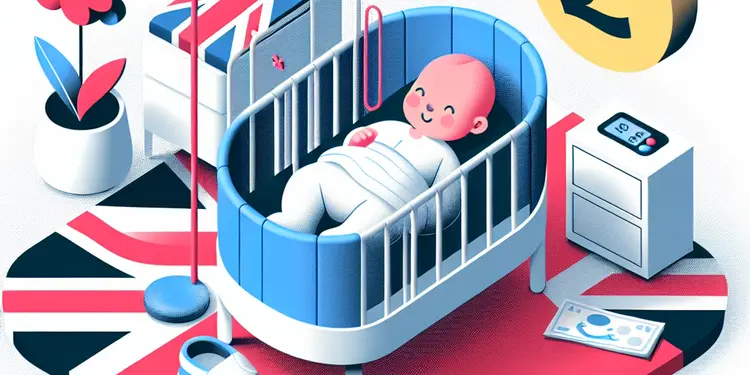
What is the safest sleep environment for an infant?
Relevance: 13%
-

Can dust mites cause asthma and eczema?
Relevance: 13%
-
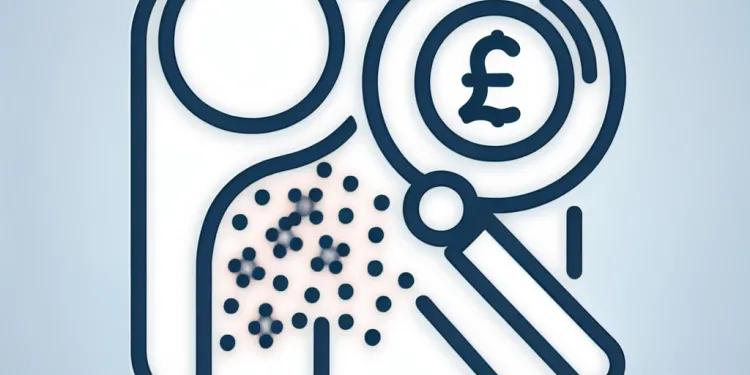
Can impetigo spread to other parts of my body?
Relevance: 13%
What Should I Do if I Find Bed Bugs in My House?
Finding bed bugs in your home can be a distressing experience, but it’s a problem that can be managed efficiently if addressed promptly. Bed bugs are small, elusive insects that can cause discomfort through their bites, and they can be difficult to eliminate once they infest a home. Here's a step-by-step guide on what to do if you suspect a bed bug infestation in your house.
Identify the Infestation
The first step is to confirm that you indeed have a bed bug problem. Look for common signs such as small, reddish-brown bugs in the seams of your mattress, tiny eggs or eggshells, and dark rust-colored spots from their excrement. Additionally, bites often appear in clusters or lines on exposed skin and can be an indicator. Proper identification is crucial to ensure that the correct treatment plan is used.
Contain the Infestation
Once you’ve confirmed their presence, it’s important to contain the infestation to prevent it from spreading to other areas of the house. Begin by placing infested items in plastic bags until they can be treated. Avoid moving items from affected rooms to other parts of your home. Reduce clutter where bed bugs can hide, making the environment less conducive for them.
Clean and Treat Infested Areas
Thoroughly cleaning infested areas is a critical step in eliminating bed bugs. Wash and dry your bedding, curtains, and clothing at the highest temperature settings. Vacuum your bed and surrounding area regularly, ensuring to empty the vacuum bag promptly into a sealed plastic bag. Apply specialist pest control treatments as recommended, or consider professional pest control services for more extensive infestations.
Consult Professional Help if Needed
If the infestation is extensive or persists despite your efforts, it may be necessary to enlist professional pest control services. Professionals have access to more potent insecticides and equipment that can effectively eliminate bed bugs. When choosing a pest control company in the UK, ensure they are certified, experienced, and come with good reviews.
Prevent Future Infestations
Prevention is better than cure when it comes to bed bugs. Regularly inspect your home for signs of bed bugs, especially after returning from travels, as these pests often hitchhike in luggage. Use bed encasements to protect your mattresses and keep your home clutter-free to reduce hiding places. Awareness and vigilance are key to preventing future infestations.
By following these guidelines, you can effectively manage a bed bug infestation in your home, ensuring a safer and more comfortable living environment.
What Should I Do if I Find Bed Bugs in My House?
Finding bed bugs at home can be scary. But don't worry, you can fix it if you act fast. Bed bugs are tiny bugs that bite and can be hard to get rid of. Here is a simple guide on what to do if you think you have bed bugs in your house.
Identify the Infestation
First, make sure you have bed bugs. Look for small, reddish-brown bugs in your mattress seams. Check for tiny eggs or eggshells and dark spots, which are their poop. Bed bug bites can also be a clue; they often appear in clusters or lines on your skin. Knowing for sure helps you use the right plan to get rid of them.
Contain the Infestation
After you know they are there, stop bed bugs from spreading. Put items with bed bugs in plastic bags until you can clean them. Don't move things from room to room. Keep your home tidy so bed bugs have fewer places to hide.
Clean and Treat Infested Areas
Cleaning is key to getting rid of bed bugs. Wash and dry your sheets, curtains, and clothes on hot settings. Vacuum your bed and nearby areas often. Throw away the vacuum bag in a sealed plastic bag. Use bed bug sprays as advised. If needed, get help from pest control experts to handle bigger problems.
Consult Professional Help if Needed
If bed bugs are still there after you clean, you might need a pest control expert. Professionals have stronger sprays and tools that work better. Pick a good pest control company in the UK. They should be certified and have good reviews.
Prevent Future Infestations
It's best to stop bed bugs before they come back. Check your home often for signs of bed bugs, especially after a trip. Use covers on your mattress and keep your home tidy. Staying alert is the best way to stop bed bugs from coming back.
Follow these steps to handle bed bugs in your home. This will help make your home safe and comfy again.
Frequently Asked Questions
What are the first signs of a bed bug infestation?
The first signs include finding small, reddish-brown insects in the seams of mattresses or tiny dark spots on bedding from their droppings.
How can I confirm that the bugs I found are bed bugs?
Bed bugs are small, oval, and reddish-brown. They have flat bodies and often hide in cracks, crevices, or furniture seams. If uncertain, consider consulting a pest control professional.
Are bed bugs harmful?
While bed bugs aren't known to transmit diseases, their bites can lead to itching, allergic reactions, and sleeplessness due to discomfort.
Should I try to eliminate bed bugs on my own?
Though you can attempt DIY methods using over-the-counter products, professional treatment is usually more effective, especially for larger infestations.
Can I use a household vacuum to get rid of bed bugs?
Vacuuming can remove some bed bugs, but it won't eliminate an infestation. Make sure to dispose of the vacuum contents in a sealed bag immediately.
How can I prevent bed bugs from spreading to other parts of my home?
Contain infested items in sealed bags, reduce clutter, and wash bedding in hot water to prevent spreading. Also, consider talking to a pest control professional.
Is it necessary to throw away infested furniture?
Not necessarily. Professional pest control services can treat infested furniture, making disposal unnecessary in many cases.
How effective are insecticide sprays for treating bed bugs?
Insecticide sprays can help, but bed bugs have gained resistance to some chemicals. It's best to use them as part of an integrated pest management approach.
After professional treatment, how can I ensure bed bugs are gone?
Follow post-treatment instructions from your pest control provider and monitor for new signs of activity over the next several weeks.
Are DIY heat treatments effective against bed bugs?
While heat is effective in killing bed bugs, it often requires specialised equipment and expertise to reach the necessary temperatures in a controlled manner.
Can bed bugs come back after treatment?
Yes, they can return, especially if any were missed. Ensuring follow-up inspections and treatments can help prevent re-infestation.
How do bed bugs typically spread in a home?
Bed bugs spread by crawling into cracks, crevices, or directly into portals like electrical outlets. They can also hitch a ride on clothing, luggage, or furniture.
Do bed bugs live in clothing?
While bed bugs prefer bedding, they can hide in clothing bags and laundry. Regular washing and using high heat can help eliminate them from clothes.
What should I avoid doing if I have bed bugs?
Avoid moving infested items unnecessarily, using outdoor pesticides indoors, and ignoring the problem, as these actions can worsen the infestation.
When should I call a pest control professional?
Call a professional as soon as you suspect a bed bug infestation for a thorough inspection and effective control measures.
What are the first signs of bed bugs?
Here are some ways to tell if there are bed bugs:
- Bites: Small, itchy red spots on your skin.
- Spots on sheets: Tiny blood spots on bed sheets or pillowcases.
- Shells: Small, brown shells from bugs growing.
- Smell: A strange, musty smell in the room.
If you think there are bed bugs, tell an adult. They can help you check and get rid of them.
The first signs are small red-brown bugs. You might see them in the edges of your mattress. You might also see tiny dark spots on your sheets. These spots are from their poop.
How do I know if the bugs I found are bed bugs?
Here is how to check if the bugs are bed bugs:
- Look at the color: Bed bugs are brown.
- Look at the size: Bed bugs are tiny, about the size of an apple seed.
- Look at the shape: Bed bugs have flat, oval bodies.
You can use a magnifying glass to see them better.
If you are not sure, you can take a picture and ask a grown-up or a pest control person to help.
Bed bugs are tiny bugs. They are oval, red-brown, and flat. They like to hide in tiny cracks or furniture seams. If you think you have bed bugs, ask a pest control expert.
Do Bed Bugs Cause Harm?
Bed bugs are small bugs that can bite your skin. They are not known to spread diseases, but their bites can make your skin itchy and red.
To stop bed bugs from biting, you can:
- Wash your sheets and clothes in hot water.
- Vacuum your mattress and carpets regularly.
- Use special covers on your mattress and pillows.
If you think you have bed bugs, ask an adult for help to get rid of them.
Bed bugs do not spread diseases. But, their bites can make you itchy. Some people might have allergies. It can also be hard to sleep because of the bites.
Can I get rid of bed bugs by myself?
If you have bed bugs, you might want to try getting rid of them yourself. But bed bugs are tricky and hard to see. They hide in tiny places. It might be best to ask for help from a bug expert.
Tools you can use:
- Vacuum cleaner to suck up bugs
- Special sprays that kill bugs
- Washing sheets and clothes in hot water
If you are not sure, ask someone to help you or call a professional pest control service.
You can try to get rid of pests by yourself using things you buy in stores. But, it is often better to have a professional help you. They know how to do it well, especially if there are lots of pests.
If reading is hard, here are some tips to help:
- Ask someone to read it out loud to you.
- Use a ruler or your finger to follow along as you read.
- Use apps that can read text aloud.
Can I use a regular vacuum to get rid of bed bugs?
Using a vacuum can help get rid of some bed bugs, but it won’t get all of them. After vacuuming, put what you collected into a bag, close it tight, and throw it away right away.
How can I stop bed bugs from moving to other parts of my house?
Bed bugs are tiny bugs that can live in your bed and bite you. If you have them, here's how to keep them from going to other rooms:
- Wash your bed sheets and clothes in hot water.
- Use a vacuum to clean up bugs and eggs.
- Put your things in sealed plastic bags.
- Check your furniture for bugs and clean it.
You can ask a pest control expert to help you. They know how to get rid of bed bugs. A calendar can help you remember when to clean and check for bugs next. Sticky notes can remind you what to do.
Put things with bugs in closed bags. Clean up messy areas. Wash your sheets in hot water. This will help stop the bugs from spreading. You can also talk to a bug expert for more help.
Do I need to get rid of furniture with bugs?
No, you don't always have to throw away your furniture. Pest control experts can help and take care of the bugs, so you might not need to get rid of your stuff.
Do bug sprays work on bed bugs?
Can you use sprays to kill bed bugs? Let's find out.
- What are bed bugs? They are tiny bugs that can live in beds and bite you.
- What is insecticide spray? It is a special spray that can kill bugs.
- How does the spray work? You spray it where bed bugs are hiding. It can help get rid of them.
- Does it work well? Sometimes it works, but not always. Bed bugs can hide in tiny places where the spray can't reach.
- What can you do? You can ask a grown-up to help find more ways to get rid of bed bugs. They might use other tools, like a vacuum or special hot air machines.
Remember, if you have bed bugs, it is important to get help from someone who knows how to deal with them.
Bug sprays can help, but some bed bugs do not get hurt by some sprays. It's good to use sprays with other ways to get rid of bed bugs.
How do I make sure bed bugs are gone after treatment?
Here are some simple steps you can follow to make sure bed bugs are really gone:
- Check again: Look at your bed and furniture for any signs of bed bugs. Use a flashlight to help see clearly.
- Wash sheets: Clean your sheets and clothes in hot water. This helps kill any bugs that might be left.
- Use a cover: Put a special cover on your mattress. This can stop bed bugs from coming back.
- Keep checking: Look for bed bugs every week. This will help you know if they come back.
Ask someone for help if you are not sure what to do. It can be a friend or pest control expert.
Listen to the advice your bug control helper gives you after they finish. Watch for any new signs of bugs for the next few weeks.
Do DIY heat treatments work to get rid of bed bugs?
Heat can kill bed bugs. But to do it right, you need special tools and someone who knows how to use them. You have to make sure it gets hot enough to kill the bugs safely.
Can bed bugs return after treatment?
Yes, bed bugs can come back after treatment. Here’s why:
- Treatment might miss some bugs or eggs.
- Bed bugs can hide in tiny places.
- They are good at surviving and coming back.
To help make sure the bed bugs don’t come back, you can:
- Follow the pest control expert's advice carefully.
- Check your home often for any signs of bed bugs.
- Keep your home clean and tidy.
Tools and techniques that can help:
- Use a flashlight to check for bed bugs in dark places.
- Wash bedding and clothes in hot water.
- Use special bed bug covers for your mattress.
These steps can help keep your home free from bed bugs.
Yes, the bugs can come back if any were missed. To stop them from coming back, it's important to check and treat the area again.
How do bed bugs usually spread in a home?
Bed bugs are tiny bugs that can live in your home. Here is how they usually spread:
- Traveling: Bed bugs can travel on your clothes, bags, or furniture when you move around.
- Hiding: They like to hide in small places like cracks in the wall, mattresses, or furniture.
- Moving through walls: Bed bugs can crawl through small holes in walls or floors to other rooms.
To keep them away:
- Check your bags and clothes after traveling.
- Clean and vacuum your home often.
- Look for bed bugs in second-hand furniture before bringing it inside.
Special tools like a magnifying glass can help you see them better. Get help from an adult if you think you have bed bugs.
Bed bugs move by crawling into small spaces. They can hide in cracks, tiny openings, or places like power sockets. Bed bugs can also travel by sticking onto clothes, bags, or furniture.
Do bed bugs live in clothes?
Bed bugs are tiny insects. They like to hide in warm places. Bed bugs can hide in clothes, but they do not live there all the time. They like beds and furniture more.
Wash your clothes in hot water to get rid of bed bugs. You can use a dryer on high heat too.
If you need help, ask an adult or a friend.
Bed bugs like to live in beds, but they can also hide in clothes and bags. Wash your clothes often and use hot water to help get rid of them.
What should I not do if I have bed bugs?
If you have bed bugs, here are some things you should not do:
- Do not panic. Stay calm and get help.
- Do not move things from one room to another. This can spread the bugs.
- Do not use a lot of bug spray. It can be harmful and might not work.
If you are not sure what to do, ask someone you trust or call a pest control expert for help. They can tell you how to get rid of bed bugs safely.
Don't move things with bugs in them if you don't need to. Don't use sprays meant for outside inside your home. Don't ignore the bug problem. These things can make the bug problem worse.
If reading is hard, try using audiobooks or ask someone to read it with you.
When should I call a bug expert for help?
If you think you have bed bugs in your home, call a bug expert right away. They will check your home and help get rid of the bugs.
Useful Links
This website offers general information and is not a substitute for professional advice.
Always seek guidance from qualified professionals.
If you have any medical concerns or need urgent help, contact a healthcare professional or emergency services immediately.
Some of this content was generated with AI assistance. We’ve done our best to keep it accurate, helpful, and human-friendly.
- Ergsy carfully checks the information in the videos we provide here.
- Videos shown by Youtube after a video has completed, have NOT been reviewed by ERGSY.
- To view, click the arrow in centre of video.
- Most of the videos you find here will have subtitles and/or closed captions available.
- You may need to turn these on, and choose your preferred language.
- Go to the video you'd like to watch.
- If closed captions (CC) are available, settings will be visible on the bottom right of the video player.
- To turn on Captions, click settings .
- To turn off Captions, click settings again.
More Items From Ergsy search
-

What are bed bugs?
Relevance: 100%
-

Do bed bugs only live in beds?
Relevance: 100%
-

Bed Bugs / bedbugs
Relevance: 100%
-

Are bed bugs dangerous?
Relevance: 99%
-

What are the signs of a bed bug infestation?
Relevance: 93%
-

Are there any natural remedies for bed bugs?
Relevance: 92%
-

Why are bed bugs so difficult to eliminate?
Relevance: 92%
-

How do bed bugs enter my home?
Relevance: 91%
-

Can I get rid of bed bugs myself?
Relevance: 89%
-

Will disposing of my mattress get rid of bed bugs?
Relevance: 89%
-

What should I do if I find bed bugs in my house?
Relevance: 88%
-

How can I tell if bites are from bed bugs?
Relevance: 86%
-

How can I prevent bringing bed bugs into my home?
Relevance: 86%
-

What items should I wash if I have bed bugs?
Relevance: 85%
-

How much does professional bed bug extermination cost in the UK?
Relevance: 82%
-

How long does a bed bug extermination process take?
Relevance: 79%
-

Hip replacement - getting into bed
Relevance: 44%
-

What is norovirus? (Diarrhoea and vomiting bug) | NHS
Relevance: 39%
-

MRSA Bug
Relevance: 34%
-

What is norovirus? (Diarrhoea and vomiting bug) | NHS
Relevance: 33%
-

How does screen time before bed specifically affect adolescents?
Relevance: 33%
-

How can I sleep comfortably during a heatwave?
Relevance: 18%
-

Top Tips to Help You Get a Good Nights Sleep
Relevance: 17%
-

What do pediatricians recommend about baby sleep pillows?
Relevance: 17%
-

Can reducing screen time improve sleep quality?
Relevance: 17%
-

How does screen time affect sleep quality?
Relevance: 16%
-

Does screen time impact REM sleep?
Relevance: 16%
-

How do you get scabies?
Relevance: 15%
-

Can HIV be transmitted through insect bites?
Relevance: 15%
-

Are there any screen time guidelines recommended for improving sleep?
Relevance: 15%
-

Does screen time affect both sleep onset and sleep maintenance?
Relevance: 15%
-

What is UV radiation?
Relevance: 14%
-

What are scabies?
Relevance: 14%
-

How should household items be cleaned after a scabies infection?
Relevance: 14%
-

Is scabies contagious?
Relevance: 14%
-

What are some tips for reducing screen time to improve sleep?
Relevance: 14%
-

What specific performance issues led to these refunds?
Relevance: 14%
-

What is the safest sleep environment for an infant?
Relevance: 13%
-

Can dust mites cause asthma and eczema?
Relevance: 13%
-

Can impetigo spread to other parts of my body?
Relevance: 13%


